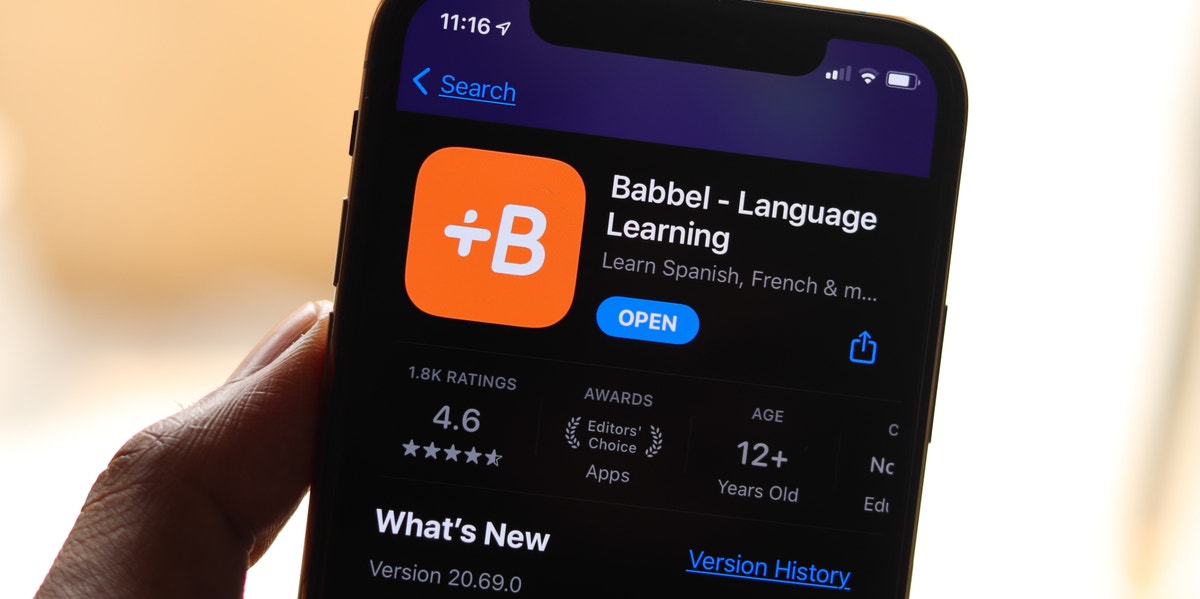
Immerse yourself in the culture and history of a new language.
By Aly Walansky — Written on Sep 23, 2021
Photo: sdx15 / Shutterstock

Since many people have lived in a virtual, remote fashion for over a year, learning via app has become more popular than ever. While this may be true for traditional school curriculum, it’s also been a wonderful opportunity for aspirational learning.
We’ve utilized apps as a way to feel better prepared to enjoy life once the world fully opens again. And one way people have done this is with language learning apps.
Not only is learning a language a fun experience, but it also shows an incredible array of benefits. Studies show that being bilingual makes our brain work harder. Speaking a second or even third language can make you more mentally alert and improve your memory, leading to improved brain retention.
Is there a direct correlation between learning a language and intelligence? It appears there is some evidence of truth in that.
“A study covered by Scientific American in 2013 seemed to show that among a small group of Swedish interpreters who were required to learn other languages incredibly rapidly (in around 9 months), they did show growth in the regions of the brain responsible for communication,” says Ed O’Neil, Academic Director UK Language Project.
RELATED: 5 Fun Creative Writing Prompts To Help You Learn A New Language
While O’Neil believes that it was a small study and not necessarily reflective of an overall correlation, he does agree there is a certain relationship that can’t be ignored.
“There may be some argument that more intelligent people decide to take up the call of language-learning and thrive on the challenge, but this isn’t the same as saying that speaking several languages makes you more intelligent,” he adds.
One of the best ways to learn a language is by using Babbel, the #1 selling language learning app.
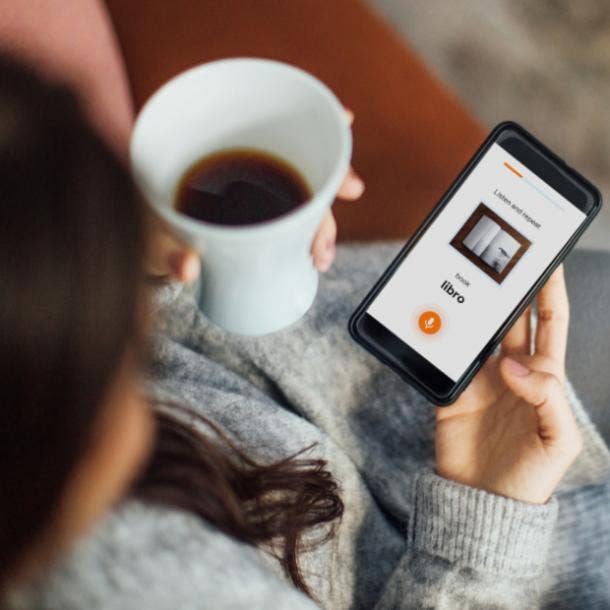
For a limited time, receive to 55% off your subscription when you sign up with Babbel!
Babbel is more than just an app that teaches words and vocabulary — it creates a foundation that will help you to understand the language by learning and appreciating the people, places, culture, and history associated with that language.
Babbel does this through app-based lessons, and fun options like games, podcasts, videos, and even offers Babbel Live, live virtual online classes with top teachers.
Not everyone learns at the same pace and in the same style, and that is what makes a flexible app like Babbel ideal. It keeps learning engaging and fun, and helps prepare you for situations that reflect what you’ll actually experience in real life, with real conversations.
The app, which offers over one dozen languages to learn — including Spanish, Italian, German, French, Russian, Danish, Polish, Swedish, and more — was built by over 150 language experts, and the lessons themselves are voiced by native speakers, unlike many other apps that use AI-technology to teach languages.
We often don't think we have enough time to learn a language lesson, but with an app like Babbel, you only need 10 minutes to complete a lesson — and you can start speaking a new language in as little as 3 weeks!
RELATED: Drinking Alcohol Improves Your Foreign Language Skills, According To Research
Benefits of Learning a New Language
The benefits of learning a new language are hard to overstate.
Not only does it expand your career opportunities, but improves your self-confidence, boosts memory and attention span, and allows you to stay present in conversations while making more meaningful connections.
But there's so much more.
1. Improves communication skills
One of the most surprising benefits of learning a new language is the improvement of overall communication skills.
“In the professional arena, we lose a lot of time and peace of mind because of the prevalence of vague language,” says Will Ward, CEO of Translation Equipment HQ. Because of this, many non-issues are made into situations at work because of poor communication.
“Learning a language has wired my brain to notice the different patterns in accurate and inaccurate communication styles,” Ward continues. “This awareness has allowed me to work on creating a culture that values and actively practices the use of clear, specific language, saving me and my team potential headaches and time-wasting.”
So, not only does this improve your communication skills in everyday life, but a new language effectively helps you widen the range of individuals to speak with.
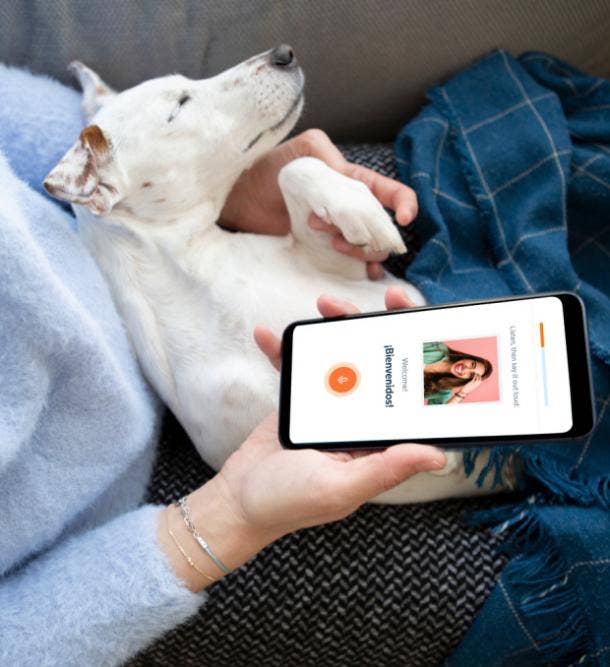
For a limited time, Babbel is offering 55% off your subscription. Sign up today!
2. Boosts creative thinking
One's knowledge does not only depend on the ability to learn different languages; however, doing so benefits both your technical and creative capabilities.
“Not only will your memory function improve, it will also enhance your problem-solving skills, because this helps you to become a flexible thinker and a good multitasker,” says Andrea Chapman, marketing manager for Nature and Bloom, who learned to study different languages she could use for interpreting, translating, or communicating.
Creative thinking is just one more way a new language improves brain function and cognitive learning. In fact, one study determined that students who learned a new language in a classroom setting dramatically improved their divergent thinking ability, which is "a thought process or method used to generate creative ideas by exploring many possible solutions."
3. Helps you connect with new people
Learning a new language does not only benefit ways of communicating and connecting with others, but it also helps you understand more about a culture and lifestyle, according to Chapman.
That's because these factors are always correlated with each other. Understanding a new language means you are given a chance to appreciate other cultures and beliefs, and how the language and writing systems have evolved through the years.
With Babbel, because you learn more than just vocabulary words, perhaps you’ll learn how to cook new recipes, sing songs, meet new people, pick up different hobbies, or wander off the beaten path.
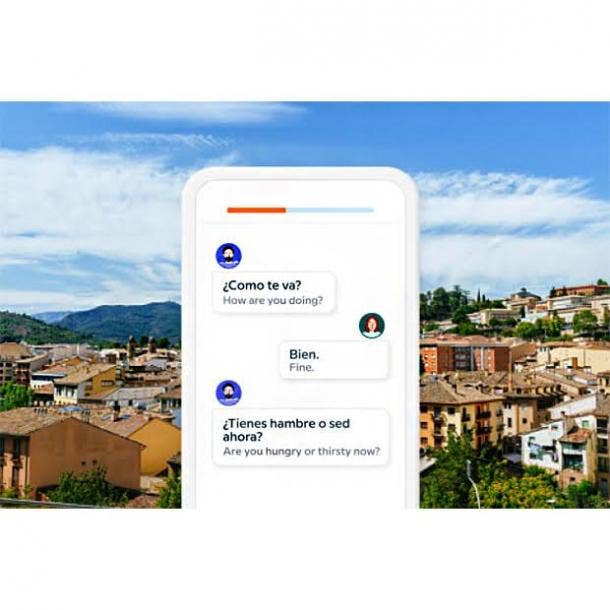
4. Improves memory
Studies have found that being bilingual makes our brain function better and retain more information that we put into it. That means you are more mentally alert, and efficiently retain information you absorb.
Learning a language often involves repetition, which helps information stay in your brain. This is a great way to commit anything to memory.
5. Advances career opportunities
Because many companies are becoming global and want to expand their reach, a new language effectively puts you at an advantage against competitors when seeking out career opportunities.
For translators and interpreters, specifically, the U.S. Bureau of Labor estimates that employment in these fields will grow 24 percent in the next 10 years.
Knowing another language also gives you an opportunity to add between 10-15 percent to your salary, allows you to communicate with individuals around the world, and lets you reach a wider array of potential customers for a business.
Being present is very useful in communication and developing relationships. To learn a language, you need to pay attention and be fully engaged, both of which are skills needed to advance your career.
6. Makes traveling an immersive experience
Another benefit of learning a new language? You experience countries and cultures by speaking the native language and communicating with the people — not just those individuals employed to work with tourists who speak your own language.
When you travel to a different country with a better understanding of the culture, history and people, you have a much more authentic experience. It's incredibly rewarding when you are engrained in someone else's culture, and can tout the hard work you have put in and all the skills you have learned.
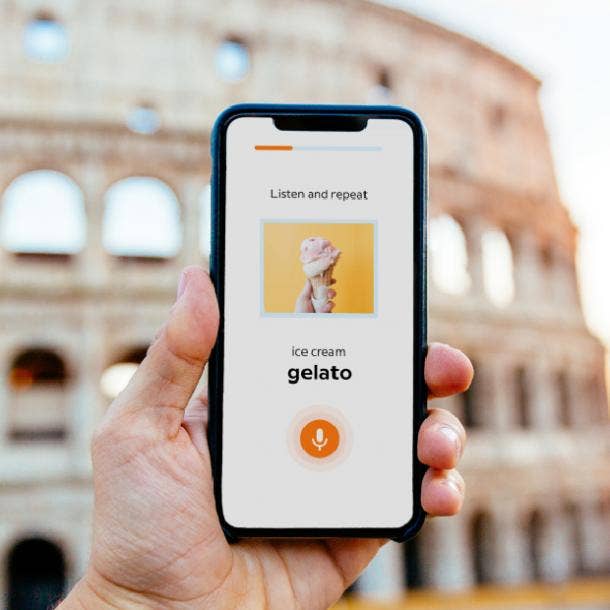
RELATED: Learn To Say 'I Love You' In Over 100 Languages
Why Babbel is the Best Language Learning App
While there are many learning apps out there that will teach you a language, there are several reasons why Babbel the best choice.
Babbel includes explanations and translations in English, which helps to not overwhelm users as they adjust to a new language. Babbel is more affordable than many other apps, making it more accessible to those on a budget who really want to learn but can't afford a large investment.
Related Stories From YourTango:
But that's not all.
Babbel is taught by real people.
On Babbel, lessons are offered by language experts and native speakers. Many other apps use computer-generated lessons taught by technology or algorithms, which leads to a less authentic experience.
The point of learning a language is real human interaction and communication, and teaching it this way helps segue to real-life use.
The app offers flexible schedules.
We’re all busy — between work, school and family responsibilities, there’s not a lot of free time to spare. But with Babbel, lessons are short and only require 10 minutes each.
Fit these lessons into any gap in your day, even if it’s during your morning commute.
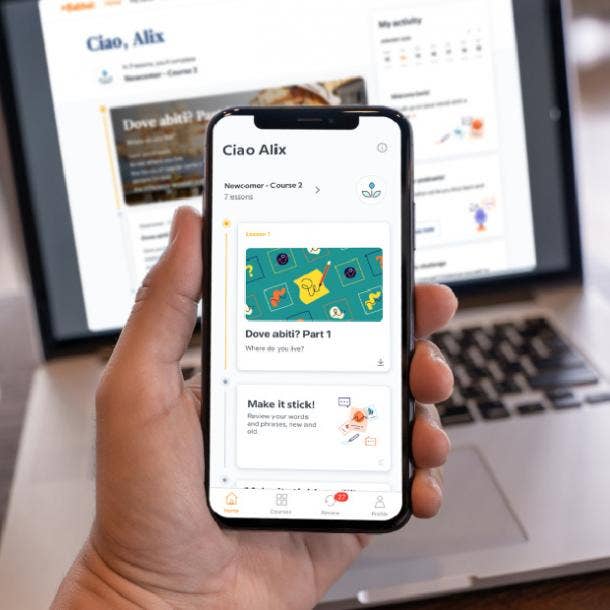
You can learn in a way you enjoy.
Babbel is not just dry lectures and homework assignments; this is a platform that offers options to learn a language in various ways that may work better for you — playing games, podcasts, videos, and more.
If you learn best by hands-on experience — cooking an Italian dish, for example — this is a great option for you. Forget sticking with something boring or uninteresting; Babbel teaches people in a way in which they are most comfortable and want to continue learning.
There's a live interaction option.
A fun feature available on Babbel is Babbel Live, a online virtual class with teachers, taught live. Babbel Live offers lessons for various levels of learning experience, and lets you learn at your own pace.
This keeps things engaging and fun versus having to sit through dry lectures that feel impersonal.
You experience the language on a deeper level.
Learning a language opens the doors to communicating and traveling in much more expansive ways.
Babbel starts that process by immersing you in the culture and history of the language you’re learning. It's the first door to travel, and embracing more cultures and people.
RELATED: 6 Research-Backed Educational Games & Apps Proven To Help Kids Learn
More for You:
Aly Walansky is a food and travel writer with 20 years of experience writing for various digital and print publications. She's channeled her love of food and travel into a love of language. Follow her on Instagram for more of her adventures.
